Are you an aspiring author looking for tips and tricks to create an engaging and immersive universe? Look no further! In this blog post, we’ll discuss everything you need to know about crafting a rich world of your own. From the basics of building history and geography to constructing complex societies and cultures, we’ve got you covered. So, let’s get started! Here are 7 tips and tricks to help any novice author create a captivating world.
1. Start by deciding what aspect of the world you want to explore first.
When it comes to creating a believable and compelling universe, there are a few key elements you should keep in mind. First, decide what aspect of the world you want to explore first. This can be anything from the magical creatures that inhabit it to the different cultures and races that call it home. Once you have a general idea of what you want to focus on, you can start fleshing out the details.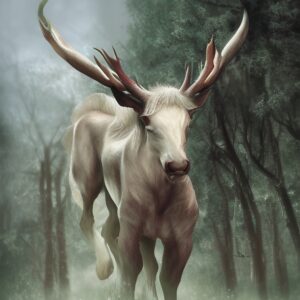
Think about what makes your world unique and interesting. What are some of the key features that make it stand out from others? This can be anything from a rich history to a unique geographical location. In order to world-build successfully, you want your readers to feel as though they are entering a new realm that is distinct from any other story. Even though some aspects of your world have been done before, it’s how you spin those elements to add freshness that makes it stand out.
2. Establish rules and laws for the inhabitants and how they live in this world. This can include things like magic, governing systems, etc.
Once you have a few key elements in mind, you can start to flesh out your world. Begin by writing down everything you know about your world, no matter how small or insignificant it may seem. Every detail matters when it comes to creating a believable and immersive world for your story.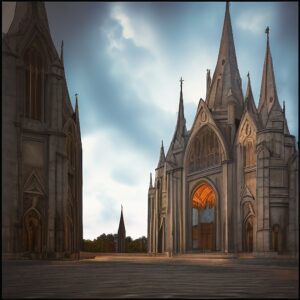
As you write, keep asking yourself questions about your world. What kind of people live there? What kind of government do they have? What are the major religions? How do people dress? What kind of technology do they have? The more questions you can answer, the more fleshed-out your world will become.
You don’t need to know the whole world before you can start writing your novel! You can do as little or much world-building as you want. If you’re somebody who usually over outlines, set a timer and/or deadline for your build so that you don’t get stuck in what’s known as “worldbuilder’s disease.”
3. Pick a genre for your story and establish the tone and mood accordingly.
By now, you should have a good understanding of what genre your world is set in. This can be anything from a light-hearted fantasy to a dark and gritty dystopian. The tone of your story will dictate the kind of world you create and the types of characters that inhabit it. 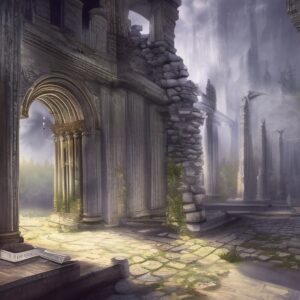
Be sure to consider all of the senses when creating your world. What does it look like? What does it smell like? What kind of sounds can be heard there? The more sensory details you include, the more real your world will feel to readers.
Lastly, stay flexible–change and evolution are frequent at this point in the process. Remember to a certain degree, your world will always be shifting. At the same time, don’t be afraid to nail down some elements that will remain constant.
4. Describe the environment of your world including weather, natural disasters, resources, land usage, etc.
The environment of your world can have a big impact on the lives of its inhabitants. Consider things like the climate, natural resources, land usage, etc. All of these factors can affect the way people live and interact with their surroundings.
For example, a world with harsh winters and limited resources would be very different from one with a temperate climate and an abundance of resources. The way people live in each of these worlds would be dictated by the environment, so it’s important to consider this when creating your own.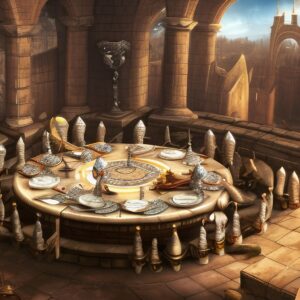
When it comes to weather, think about the different seasons and what kind of impact they have on the world. Does winter last for months on end? Does it always rain? Are there any natural disasters that regularly occur? All of these factors can help to make your world feel more real to readers.
You might also consider also what resources are abundant and scarce. This can have a big impact on the economy and social structure of your world. What types of resources should be abundant that make their lives easier? On the other hand what types of resources are scarce and cause conflict? How do some people live in harmony with nature? And how do some people exploit it?
5. Define the culture of your universe’s inhabitants by giving them customs, celebrations, religions (or lack thereof), common language(s), etc.
Culture is an important aspect of world-building. It can help to define the people who live in your world and how they interact with each other. Consider things like customs, celebrations, religions, common language(s), etc. All of these factors can help to make your world feel more real and alive.
For example, if you’re creating a fantasy world, you might want to consider what kind of magic system would be used there. What are the different schools of magic? What are the rules surrounding magic? How do people use it in their everyday lives?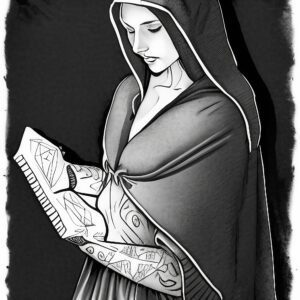
You might also want to consider the different cultures that exist in your world and how they interact with each other. Are there any major conflicts between them? What is the source of these conflicts? Is there anything that unites them or could eventually unite them?
You might also want to consider what kind of celebrations and holidays are present in your world.
6. Create a detailed history for the world. This can be anything from the formation of the world itself to major events that have shaped it over time.
History is an important part of world-building. It can help to define the people who live in your world and how they interact with each other. Consider things like the formation of the world itself, major events that have shaped it over time, etc. All of these factors can help to make your world feel more real and alive.
For example, you might want to consider the different wars that have been fought in your world and how they’ve affected its people. What are the different political factions that exist? What is the social hierarchy like? How do different cultures interact with each other?
You might also want to consider the different religions that exist in your world and how they impact its people. What are the different beliefs? How do they affect the way people live their lives?
Think about the various creatures that inhabit your world. This can include anything from animals to mythical creatures. Creatures are an important part of world-building. They can help to define the people who live in your world and how they interact with each other. Consider things like animals, mythical creatures, etc. All of these factors can help to make your world feel more real and alive.
Different wars have been fought for different reasons. Some are for power, some are for resources, and some are for ideologues. It’s important to consider the different wars that have been fought in your world and how they’ve affected its people. What are the different political factions that exist? What is the social hierarchy like? How do different cultures interact with each other? You might also want to consider the different religions that exist in your world and how they impact its people. What are the different beliefs? How do they affect the way people live their lives? Consider what kind of creatures inhabit your world. This can include anything from animals to mythical creatures. Creatures are an important part of world-building.
7. Use other works as inspiration but be sure not to steal ideas outright from these sources.
There are a lot of great works out there that can serve as inspiration for your own world-building. However, it’s important to make sure that you’re not just outright copying ideas from these sources. Instead, use them as a starting point and then put your own spin on things. This will help to make your world feel more unique and fresh.
Some great works to consider include:
-The Lord of the Rings by J.R.R. Tolkien
-The Chronicles of Narnia by C.S. Lewis
-Harry Potter by J.K. Rowling
-Game of Thrones by George R.R. Martin
So, what have we learned? First and foremost, it’s important to use other works as inspiration for your own world-building. This will help to make your world feel more unique and fresh. Secondly, be sure not to steal ideas outright from these sources. Instead, put your own spin on things. Finally, always remember that world-building is an ongoing process. It’s never really finished so don’t be afraid to keep tweaking and perfecting your world until you’re happy with it. Thanks for reading!
